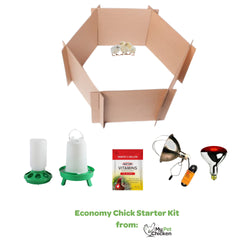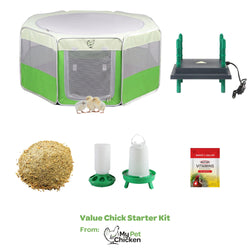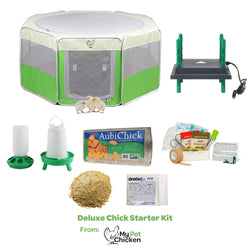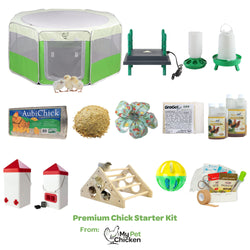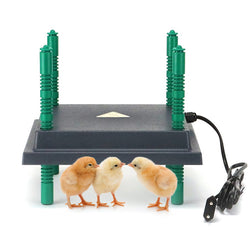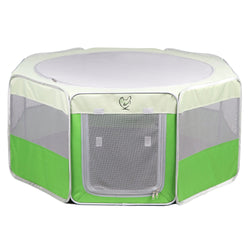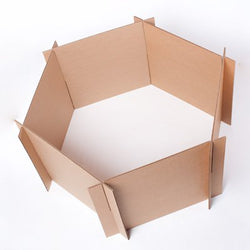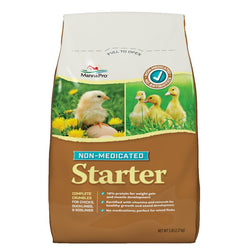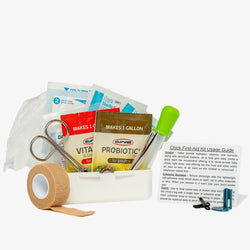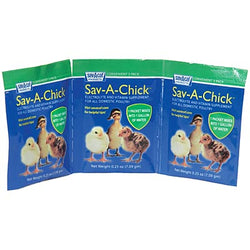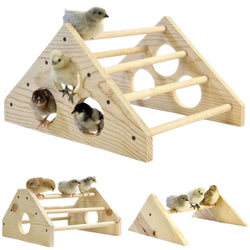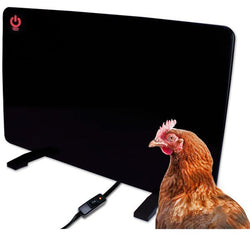How do I care for a wounded chicken?
Back to blog
It's so stressful to have a hurt chicken! If you've got an emergency, or a wound situation you don't feel equipped to handle, try our friends at VetTriage. They are open 24/7/365 and are ready to provide tele-health services for your chicken or any other bird for a reasonable fee.

(This hen was attacked but made a beautiful recovery)
That said, you may be equipped to handle the wound by yourself. Here's how we recommend you go about doing it.
If your chicken only has a small injury, she will probably recover quickly; the big danger is infection. Even larger wounds often heal with no problems if you give your chicken good care. Chickens are surprisingly resilient! In fact, if your chicken has been bitten by a dog or a raccoon and you are worried about rabies, stop worrying. Birds can't get rabies; only mammals can.
Pain relief
If your chicken is in a great deal of pain, you may dissolve 5 aspirin per gallon of water and let her drink that; it should reduce the pain. Make sure she is no longer bleeding before you do that, though, since aspirin thins the blood and can increase bleeding.
Reintroducing to the flock
If your wounded chicken is eating, drinking and pooing, you can probably reintroduce her to the flock again as soon as you think her wound won't be pecked by the others. Consider a blu-tinted topical treatment once you're sure the wound isn't infected: chickens are attracted to the redness of wounds, and the blue absorbs the red color! Nothing to see here, girls!
When in doubt, call the Vet!
If you have any concerns about any of this, or you're unsure how to proceed with your injured bird, a veterinarian is your best bet. If your local veterinarian isn't open, isn't taking new patients or doesn't treat poultry, again, we can't recommend our friends at Vet Triage more highly. They are on standby waiting to help with your chicken care needs!

(This hen was attacked but made a beautiful recovery)
That said, you may be equipped to handle the wound by yourself. Here's how we recommend you go about doing it.
Step-by-step instructions for treating a wounded chicken
- Separate your wounded chicken from the rest of the flock first, otherwise the other chickens will peck her and make the problem worse.
- Keep her warm to avoid shock. Shock can kill even when the wound itself doesn't seem deadly.
- Give her access to food and water if she seems to want them.
- Carefully wash the wound with one of these three items: sterile saline solution, betadine diluted with sterile saline to the color of a "weak black tea," or best of all, with hypochlorus acid solution.
- Apply coagulant powder if the wound won't stop bleeding, or if you don't have any, use a clean gauze to apply steady, firm pressure until the bleeding stops.
- Apply antibiotic ointment to the wound, being careful not to use anything on your bird containing the suffix -caine, like benzocaine or lidocaine, for example.
- Keep your injured bird in confinement and carefully watch for signs of infection, not returning her to the rest of the flock until she's no longer at risk of being pecked by the others.
If your chicken only has a small injury, she will probably recover quickly; the big danger is infection. Even larger wounds often heal with no problems if you give your chicken good care. Chickens are surprisingly resilient! In fact, if your chicken has been bitten by a dog or a raccoon and you are worried about rabies, stop worrying. Birds can't get rabies; only mammals can.
Pain relief
If your chicken is in a great deal of pain, you may dissolve 5 aspirin per gallon of water and let her drink that; it should reduce the pain. Make sure she is no longer bleeding before you do that, though, since aspirin thins the blood and can increase bleeding.
Reintroducing to the flock
If your wounded chicken is eating, drinking and pooing, you can probably reintroduce her to the flock again as soon as you think her wound won't be pecked by the others. Consider a blu-tinted topical treatment once you're sure the wound isn't infected: chickens are attracted to the redness of wounds, and the blue absorbs the red color! Nothing to see here, girls!
When in doubt, call the Vet!
If you have any concerns about any of this, or you're unsure how to proceed with your injured bird, a veterinarian is your best bet. If your local veterinarian isn't open, isn't taking new patients or doesn't treat poultry, again, we can't recommend our friends at Vet Triage more highly. They are on standby waiting to help with your chicken care needs!
